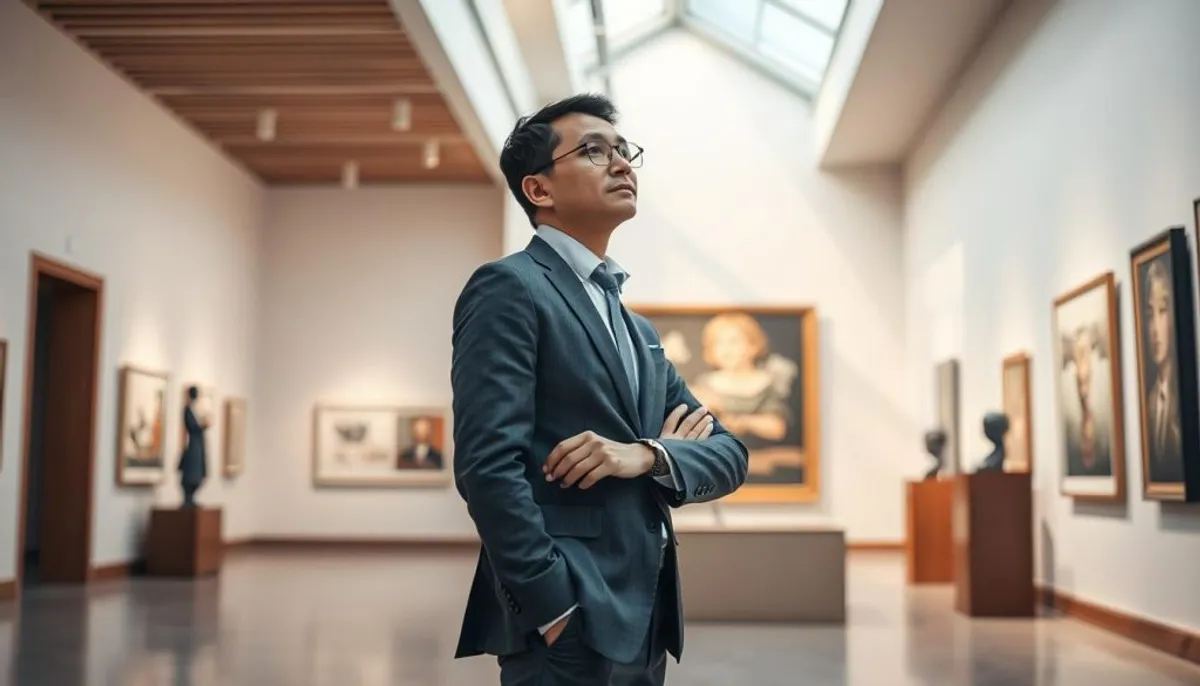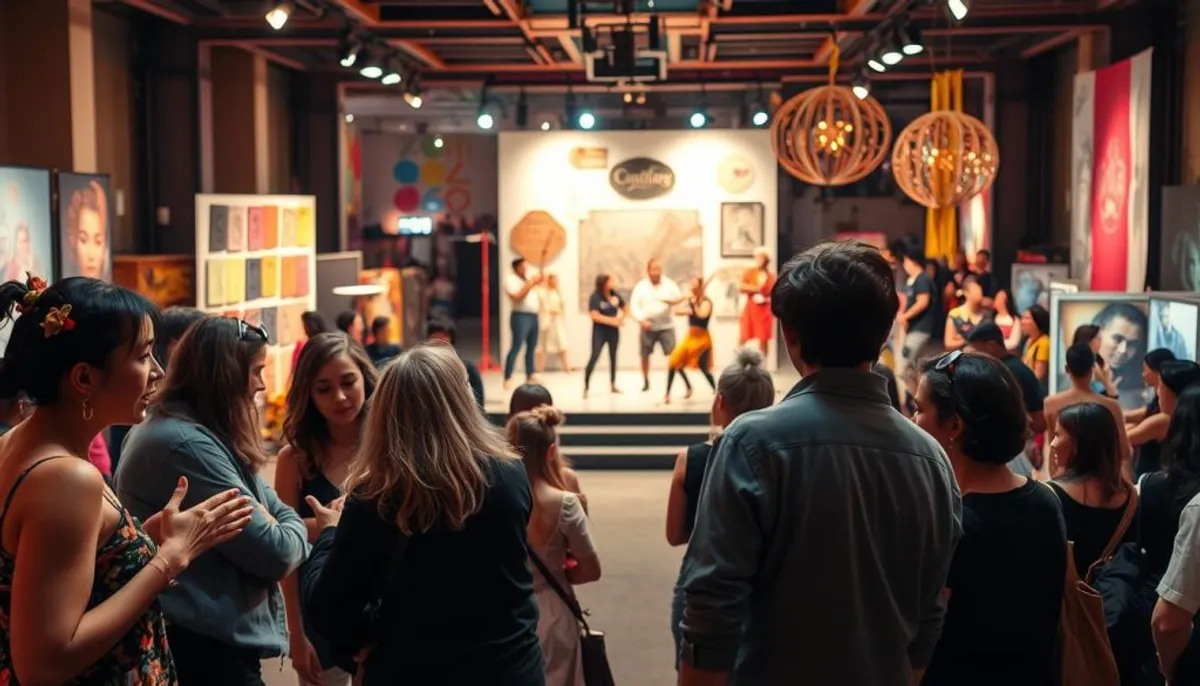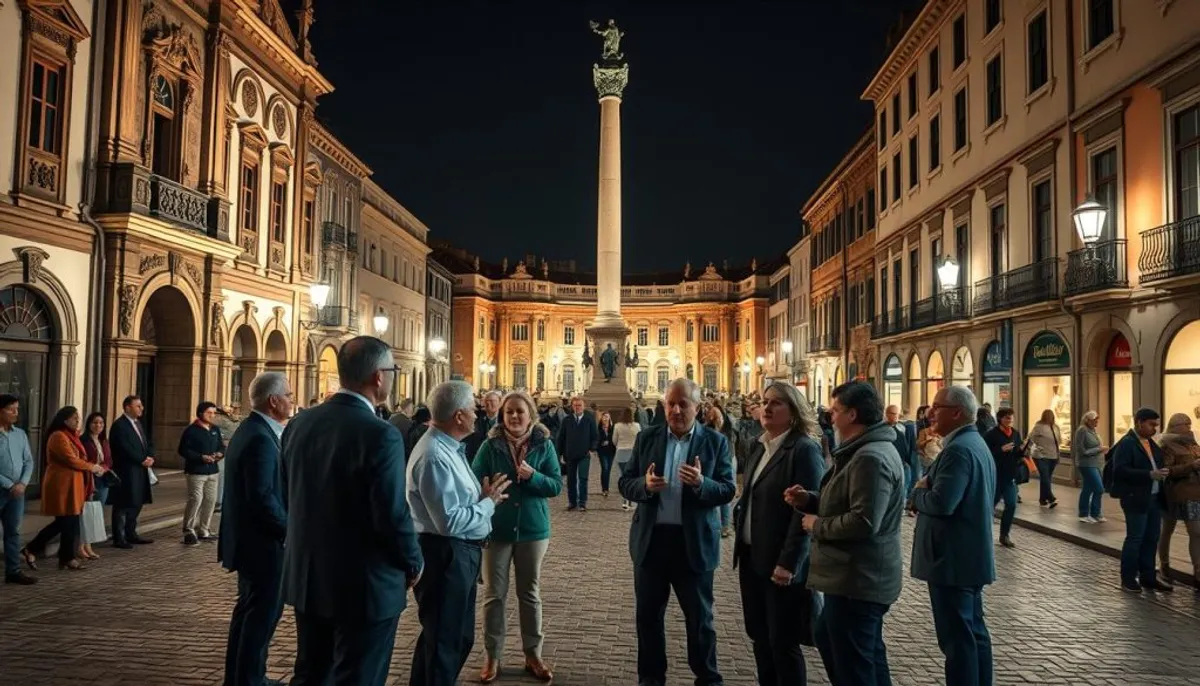Cultural operators are essential in the French artistic landscape. They enrich cultural life by organizing events, managing institutions, and preserving our heritage. But what does it actually mean to be a cultural operator?
A cultural operator can specialize in a specific artistic discipline or be rooted in a particular region. These professionals operate in various sectors, from museums to festivals, including theaters and art galleries.

In France, public support is often granted to cultural organizations. For example, the Government of the Walloon-Brussels Federation encourages access to culture for all, including students. This policy is manifested through initiatives such as free museum admission on the first Sunday of the month.
Cultural operators must navigate numerous challenges, from project management to securing funding. They need to balance creativity and pragmatism to succeed in their missions. This guide immerses you in the captivating world of cultural operators.
What is a cultural operator
A cultural operator plays a central role in promoting culture. They are a key player in cultural organizations, orchestrating the artistic and heritage life of our society.
Definition and fundamental role
The cultural operator is a professional or structure dedicated to the design, organization, and implementation of cultural projects. They ensure mediation between artists, works, and the public. As of January 1, 2022, the Ministry of Culture counted 82 supervised organizations, of which 76 had the status of state operators.
Types of cultural operators
There are two main types of cultural operators:
- Thematic operators: specialized in a specific artistic discipline
- Territorial operators: rooted in a particular territory
Thematic operators focus on one or more artistic fields, such as performing arts companies. Territorial operators, such as cultural centers or museums, base their cultural project on territorial anchoring and are often multidisciplinary.
Main missions
Cultural operators intervene in various fields, including creation, visual arts, live performance, architecture, heritage, and knowledge transmission. Their main missions include:
- Programming artistic events
- Managing cultural infrastructures
- Cultural mediation between artists and the public
- Conservation and enhancement of heritage
These professionals play a crucial role in the democratization of culture and the development of artistic education. For example, the Cultural and Artistic Education Pathway (PECA) is aimed at all students, from kindergarten to the end of high school, through the intervention of recognized cultural operators.
The fields of intervention of cultural operators
Cultural operators are essential in the artistic and cultural fabric. They intervene in several areas, from managing institutions to preserving heritage. Their expertise is crucial for maintaining the vitality and diversity of the cultural scene.
Management of cultural institutions
Cultural operators manage museums, theaters, and other cultural venues. They ensure the smooth operation of these institutions. They also create a cultural programming that is varied and appealing to all.
Organization of artistic events
The organization of artistic events is at the heart of their mission. They plan and coordinate festivals, exhibitions, and performances. These artistic events enliven territories and promote artists.

Cultural mediation
Cultural mediation is an important aspect of their work. They create bridges between works and the public. They develop educational activities to make art accessible to everyone, especially students as part of the Cultural and Artistic Education Pathway.
Heritage conservation
The preservation of cultural heritage is a key mission. Operators ensure the conservation and enhancement of works and historical sites. They work in collaboration with experts to ensure the sustainability of our cultural heritage.
| Field of intervention | Examples of activities |
|---|---|
| Management of institutions | Direction of museums, theaters |
| Artistic events | Festivals, exhibitions |
| Cultural mediation | School workshops, guided tours |
| Heritage conservation | Restoration of works, preventive archaeology |
The skills required to become a cultural operator
Becoming a cultural operator requires a set of varied skills. Cultural training is essential for developing these crucial abilities.
Understanding art history and cultural management is indispensable. This knowledge allows one to grasp the context of cultural projects. Management of cultural projects, on the other hand, involves planning, organizing, and coordinating teams.
Communication skills are vital for interacting with various stakeholders in the sector. Creativity and adaptability are essential personal qualities in this constantly evolving field.
Here is an overview of the most sought-after skills among cultural operators:
| Skill | Percentage of operators concerned |
|---|---|
| In-depth knowledge of local actors and culture | 90% |
| Promotion of French expertise | 80% |
| Budget and accounting management | 75% |
| Funding research | 65% |
| Human resources management | 60% |
Continuing education is crucial in this dynamic sector. It allows cultural operators to stay updated with new practices and technologies. For example, 55% of cultural advisors adapt to new forms of dissemination via digital platforms.
The legal and regulatory framework
Cultural operators navigate a complex legal landscape. This landscape is shaped by national and local cultural policies. Understanding this framework is crucial for successfully carrying out their missions, particularly in developing post-mediation strategies.
Possible legal statuses
Cultural structures can choose from several legal statuses. These choices depend on their objectives and functioning. Among these statuses, we find:
- 1901 law associations
- Public Cultural Cooperation Establishments (EPCC)
- Commercial companies (SARL, SAS)
- Public interest groups (GIP)
More than 70 EPCCs have emerged thanks to cooperation between the State and local authorities. They enable the realization of cultural objectives on a national scale.
Legal obligations
Cultural operators must fulfill several legal obligations. These obligations include:
- Protection of copyright
- Safety of public events
- Financial and accounting management rules
- Accessibility standards for people with disabilities
Cultural policies have a direct impact on these obligations. Article 27 of the Universal Declaration of Human Rights of 1948 is an example. It states that "Everyone has the right to freely participate in the cultural life of the community."
Professional standards
Cultural operators must adhere to professional standards. These standards ensure the quality and ethics of their activities. They include:
- Transparency in the management of public funds
- Equity in access to culture
- Respect for cultural diversity
- Promotion of cultural rights
The appropriation of cultural rights by sector actors is highly variable. This highlights the importance of a clear definition and understanding of these rights in the implementation of cultural policies.
The management of cultural projects
Management of cultural projects is a demanding field that requires a variety of skills. It involves planning, financing, and coordinating teams. Professionals must master these aspects to succeed in their missions.
Planning and organization
Planning plays an essential role in cultural project management. It involves setting objectives, creating a timeline, and forecasting necessary resources. Rigorous organization allows for anticipating challenges and ensuring the smooth progress of the project.
Budget and financing
Financing is a crucial aspect of project management. It is necessary to develop a detailed budget and identify funding sources. Public grants, sponsorship, and self-generated resources are options to explore. A project manager must know how to manage these different sources to ensure the financial viability of their project.
Team coordination
Coordinating multidisciplinary teams is essential in cultural project management. The project manager must know how to motivate, lead, and communicate effectively with the team. This skill is crucial for the success of the project.
| Experience Level | Gross Annual Salary | Recommended Degree |
|---|---|---|
| Beginner | 25,000 – 35,000 € | Bac +3 to Bac +5 |
| Experienced | > 45,000 € | Bac +5 (90% of cases) |
Cultural project management offers interesting but demanding prospects. Professionals must be ready to work with irregular hours and face strong competition. Despite these challenges, it is a field that allows for significant contributions to cultural life.
Relationships with public institutions
Cultural operators are essential in implementing cultural policies in France. Their collaboration with public institutions is crucial for the development of artistic and cultural projects. This collaboration is indispensable for the realization of these projects.
Collaboration with local authorities
Cultural operators work closely with local authorities. They aim to integrate their projects into local cultural policies. This collaboration manifests in several ways:
- Obtaining funding for cultural initiatives
- Requesting necessary permits for organizing events
- Adapting projects to the specific needs of local communities

Institutional partnerships
Cultural operators establish partnerships with various public institutions. These partnerships aim to enrich the cultural offering. For example:
- The Ministry of Culture collaborates with 100 national operators, including the Louvre Museum and the National Library of France
- ONDA, funded by the Ministry of Culture, supports artistic dissemination in partnership with European organizations
- More than 60 countries are involved in cultural seasons, promoting international cultural exchanges
These partnerships allow cultural operators to integrate into an extensive network. They thus contribute to the vitality of the French cultural sector. This sector generates a turnover of 91 billion euros and supports 640,000 jobs.
Funding cultural activities
Cultural funding represents a major challenge for the artistic sector in France. Various funding sources play a crucial role in supporting the creation and dissemination of works. They are essential for ensuring the sustainability and diversity of artistic expressions.
Public grants
The State and local authorities are key players in cultural funding. They invest over 8.7 billion euros annually in cultural policies. Among these expenditures, 50% are dedicated to supporting artistic expression and cultural activities.
Sponsorship and patronage
The private sector also plays an important role through sponsorship and patronage. These partnerships allow companies to support artistic projects. They benefit from tax advantages and increased visibility.
Self-generated resources
Cultural institutions generate revenue through ticket sales, merchandise sales, and space rentals. In 2023, the 100 national monuments welcomed 550,000 students as part of school programs. This significantly contributes to their self-generated resources.
The health crisis has profoundly impacted cultural funding. The State allocated 14 billion euros to support the sector. However, cultural venues continue to face challenges, including rising energy costs. They must adapt to more sustainable practices.
Conclusion
Discovering the profession of cultural operator reveals an exciting and varied field. These experts are essential for enriching our cultural life. They work in cultural centers, such as the 117 recognized by the Walloon-Brussels Federation, with the help of 1200 enthusiasts.
Their work takes place in an evolving environment, facing major challenges. The pandemic caused a significant drop in revenue, reaching up to -83% in some areas in 2020. In the face of these challenges, the adaptability and resilience of cultural operators have proven crucial.
Despite these obstacles, the cultural sector remains vital and vibrant. The right to cultural fulfillment, enshrined in the Belgian Constitution since 1994, underscores its importance. For those wondering "what is a cultural operator," it is a promising profession. It is at the center of the societal and artistic challenges of our time.
RelatedRelated articles


